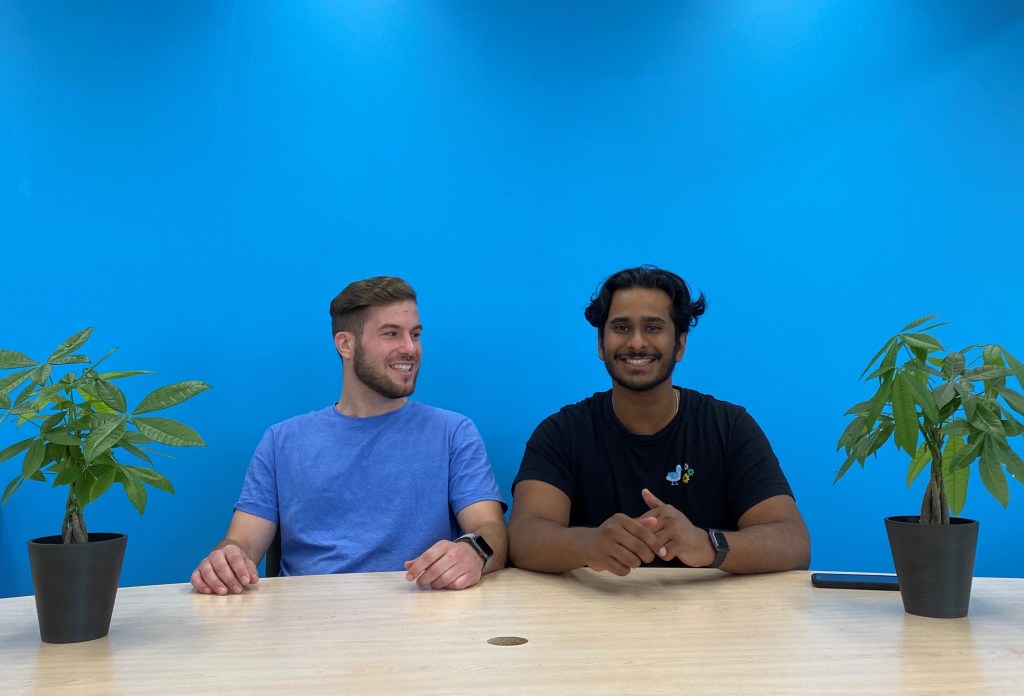Tyltgo wants to make it easier for restaurants and small businesses to compete with same-day delivery services offered by the likes of Amazon and HelloFresh. The Canadian company, which recently raised CAD $2.3 million (USD $1.8 million) in a seed round, is akin to a white label Uber Eats, providing businesses an on-demand delivery platform under their own branding that connects them to gig economy couriers.
“I think about us as a post-purchase experience company,” co-founder and CEO Jaden Pereira told TechCrunch. “The recipient goes directly onto the merchant’s platform and places orders through them, so it feels like they’re interacting with the brand they purchased from throughout the entire experience. Our messages, notifications, tracking pages and delivery are all customized under the merchant’s brand name, but it’s powered by Tyltgo.”
The necessity of having products delivered during the pandemic’s shelter-in-place orders combined with the massive reach of e-commerce giants like Amazon has created a society that expects same-day deliveries. Tyltgo recognized the exclusionary nature of that reality on smaller businesses with less time and fewer resources, and contrived to remedy the situation with some innovative tech and gig economy couriers.
In July 2018, Pereira, 22, co-founded the company with fellow student and developer Aaron Paul while studying at the University of Waterloo. Pereira originally did deliveries himself as a side hustle, while building up a consumer-facing service on Shopify. In October 2019, Pereira and Paul shifted focus to B2B, identifying the real problem as merchants struggling to offer quality same-day delivery at an affordable price.
Starship Technologies CEO Lex Bayer on focus and opportunity in autonomous delivery
From December 2019 to December 2020, Tyltgo’s revenue grew 2,000%, says Pereira. The company started 2020 with two staff members and ended with nine, including former head of Uber Eats Canada’s marketplace operations, Joe Rhew, and former director of engineering at Goldman Sachs-acquired fintech company Financeit, Adnan Ali.
Aided by funding from VC firm TI Platform Management, Y Combinator and angel investor Charles Songhurst, Tyltgo projects another 1,500% revenue growth for 2021. The company’s goal is to expand its team, develop an API and app-based platform and add 100 more merchants across Ontario.
Pereira said Tyltgo originally focused on florists, and occasionally pharmacies, but demand from the restaurant industry led to the company’s new target — meal kit deliveries.
Meal kit services that provide the culinarily challenged with perfectly portioned ingredients and cooking instructions were already gaining popularity in the before times. When the pandemic hit, services like HelloFresh and Blue Apron saw even more growth. As restaurants struggled to keep their businesses open, many started to get in on the action, delivering restaurant-quality meals with instructions for heating and serving.
The global meal kit delivery services market is expected to reach almost $20 billion by 2027, with heat-and-eat options taking a large share of that market. Tyltgo is counting on the success of this industry. It has already secured partnerships with restaurants like General Assembly Pizza and Crafty Ramen, as well as with more traditional meal kit delivery services from grocery stores and organic farms.
Pereira said working in the “quasi-perishable space” of flowers and meal kits is both a challenge and a differentiator for the company. Depending on the contents of the delivery, Tyltgo will determine its perishability window and make sure to match that window with a driver. It’s also got an advanced fleet management platform that assigns a number of deliveries to suit the size of a courier’s vehicle.
“In the earlier days, the hardest part was being able to match those perishability windows without causing damage to the products,” said Pereira. “We all know that in logistics, you have to account for traffic, weather conditions, all these other things, but you have an eight-hour delivery window to get out 35 deliveries.”
Another challenge is ensuring the top-quality service Tyltgo advertises while working in the gig economy. Selecting for reliable couriers has slowed the company down at points, but Tyltgo aims to grow capacity only if it can simultaneously maintain a low error threshold.
“We won’t bring on a merchant if we don’t think we have the capacity to handle their deliveries and meet those expectations,” said Pereira.
Whether or not Tyltgo’s meal kit focus will end up driving scalability in the long run, the platform itself has legs. Pereira’s goal is to see Tyltgo become a part of every post-purchase customer experience for all retail trade categories, and that includes expanding into customer service, branding and transactions on top of delivery.
“The main reason why we’re doing this is because a lot of these smaller, brick-and-mortar retailers don’t have the time and resources to be able to compete with the Amazons of the world,” said Pereira. “We want to be able to put that power in their hands.”
10 investors predict MaaS, on-demand delivery and EVs will dominate mobility’s post-pandemic future































Comment